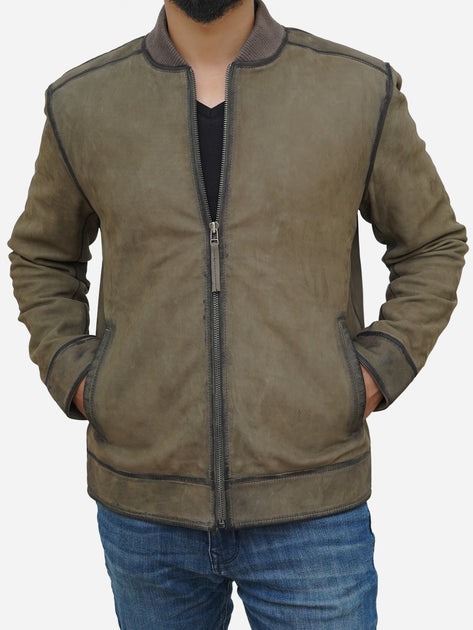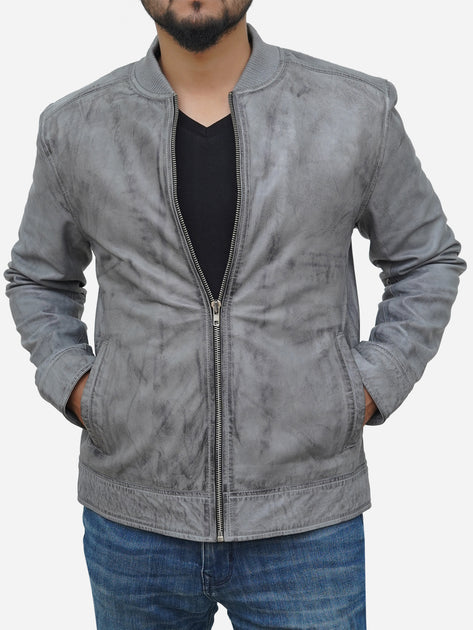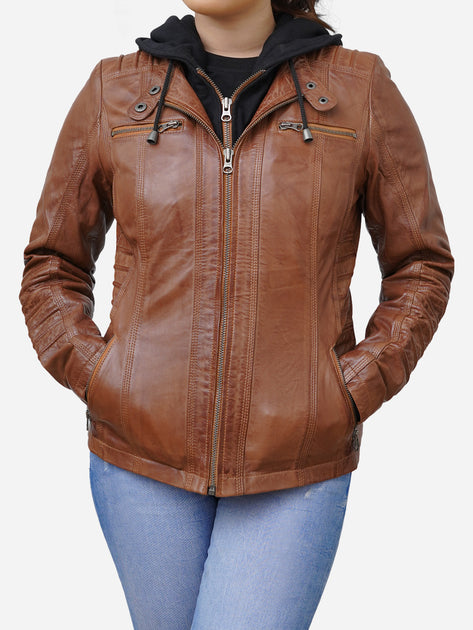Real Leather vs Synthetic Leather
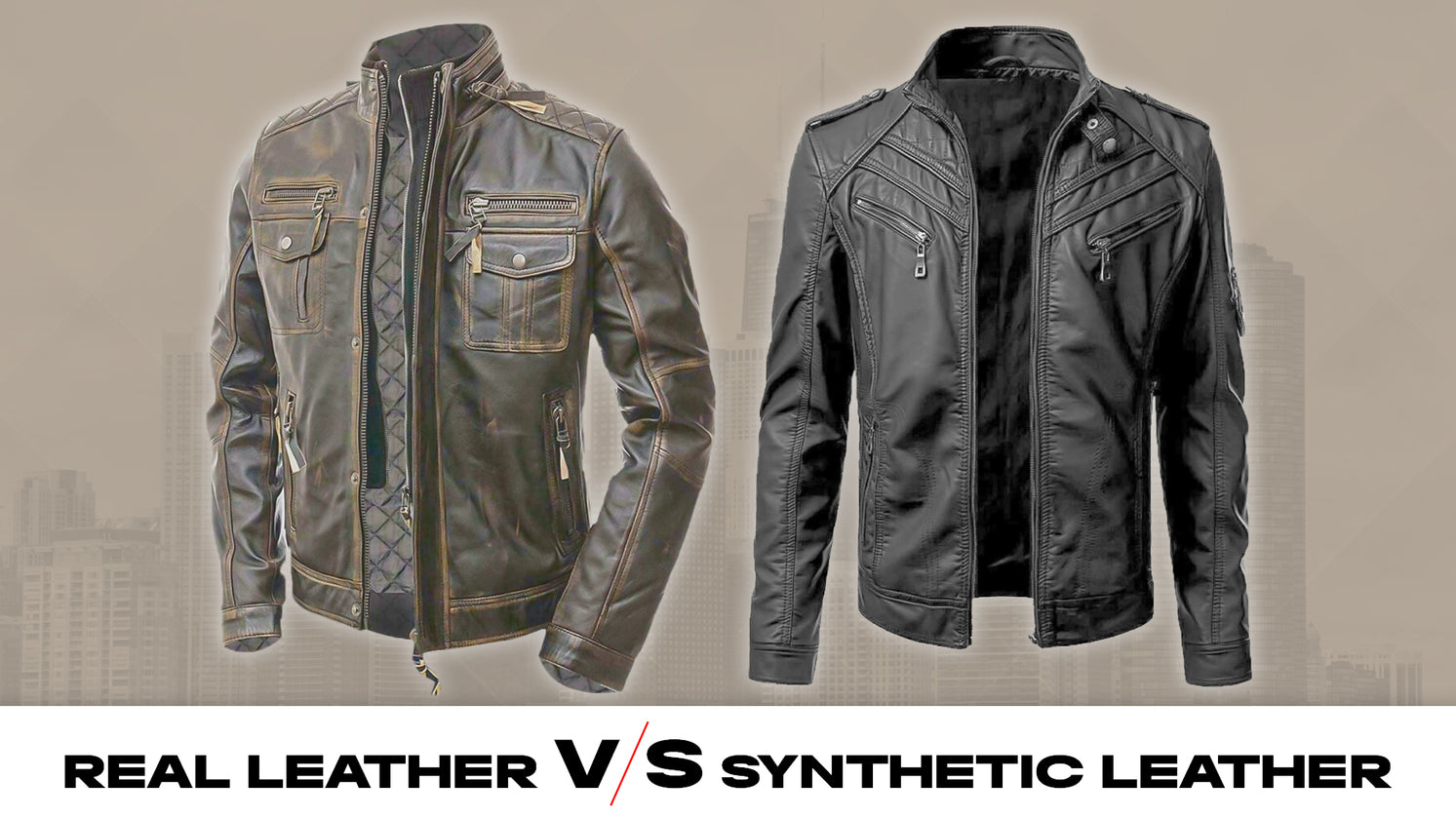
Customers often compare faux leather and real leather jackets when deciding between them. It's important to consider personal preferences and interests when making this choice. This article aims to provide a comprehensive comparison of the two materials. It considers factors such as durability, cost, and environmental impact to help readers make well-informed decisions when selecting a jacket.
Faux leather, also famous as fake leather, is a synthetic material that features polymers that mimic the appearance of genuine leather. On the other hand, genuine leather is a natural material derived from animal skins. Faux leather tends to be more affordable and accessible. At the same time, genuine leather is highly regarded for its durability, flexibility, and unique texture. Both materials have distinct advantages and drawbacks. Also, understanding these differences can help individuals make the best choice for their needs.
Pros And Cons
Synthetic Leather
When considering the choice between faux leather jackets and real leather jackets. So, it's important to weigh the various pros and cons associated with each. Faux leather is also famous as synthetic or vegan leather. It is a plastic-based material designed to resemble real leather. One of its primary advantages is its affordability compared to genuine leather, making it a financially savvy choice. Furthermore, faux leather offers more versatility in terms of design options and is generally easier to maintain. However, it's worth noting that faux leather is generally less durable and breathable than real leather. Additionally, its production process often involves the use of plastic components. This makes it less environmentally friendly than authentic leather.
Real Leather
Leather jackets offer many benefits due to the unique properties of real leather. It is a natural material from the hides of animals, often cows, goats, or sheep. One of the key advantages of genuine men's leather jackets is their exceptional strength and flexibility. It ensures long-lasting wear and tear resistance. Additionally, leather jackets are famous for their timeless appeal. It adds a touch of style to any wardrobe. Also, the distinct texture that only genuine leather can provide.
Despite their many advantages, it's important to consider the drawbacks associated with leather jackets. A notable disadvantage is their higher price point compared to synthetic options. Furthermore, ethical concerns related to the sourcing of animal hides and the necessary maintenance. Such as regular conditioning and protection from moisture and stains. They are important considerations for potential buyers. Being mindful of these factors can make you a responsible consumer.
When cleaning a leather jacket, avoiding using water or strong chemicals that can damage the material is crucial. Instead, a gentle wipe with a soft cloth is recommended to maintain the jacket's quality and appearance. Additionally, it's important to note that exposing a genuine leather jacket to heat can cause damage. It is also important to note that ironing a leather jacket is not recommended and can cause irreversible damage. In terms of repairing a leather jacket, seeking a reputable leather repair business is for the best results.
Which One To Choose - Real Vs Synthetic Leather Jacket
Several essential factors must be considered when choosing between synthetic leather and genuine leather jackets. Firstly, cost is a significant consideration. Faux leather jackets are more affordable than genuine leather jackets. Additionally, each fabric's distinct appearance and texture make personal style a crucial aspect to consider. Environmental impact is also a concern, given that genuine leather is from animal hide and has sustainability implications.
Another important consideration is the jacket's use. Genuine leather jackets for men are often more durable and breathable. It makes them an excellent choice for outdoor activities or harsh weather conditions. On the other hand, women's genuine leather jackets offer a stylish look. Also, it provides a variety of versatile outerwear options. Faux leather jackets are more adaptable and easier to maintain. At the same time, they are suitable for everyday use.
To make an informed decision, it is essential to carefully weigh the benefits and drawbacks of each material based on individual preferences and priorities. Additionally, it is crucial to consider the sourcing and manufacturing processes of the materials. They ensure that they align with one's personal beliefs and values.
Conclusion
When choosing between faux leather and genuine leather jackets, consider your style, budget, and sustainability concerns. Also, how do you plan to use the coat? If you want an affordable and low-maintenance option, faux leather is perfect. But if you're looking for a long-lasting and eco-friendly choice, genuine leather might be more up your alley. Take the time to weigh the pros and cons of each material so that you can make a decision that suits your unique needs and lifestyle.
FAQS
Is it a good idea to purchase a faux leather jacket?
Whether or not a faux leather jacket is a good choice depends on individual preferences and priorities. Faux leather jackets are often more affordable and require less maintenance.
Can you distinguish between faux leather and genuine leather?
Distinguishing between genuine and faux leather can be challenging, especially if the faux leather is of high quality. Genuine leather, however, has a unique texture and smell that are hard to replicate in synthetic materials.
How long do faux leather jackets typically last?
The durability of faux leather jackets varies depending on the material and manufacturing method. With proper care and upkeep, high-quality synthetic leather jackets can last for several years. Although they may not be as durable as genuine leather jackets in the long run.
Leave A Reply
Your email address will not be published. Required fields are marked *
Featured Products
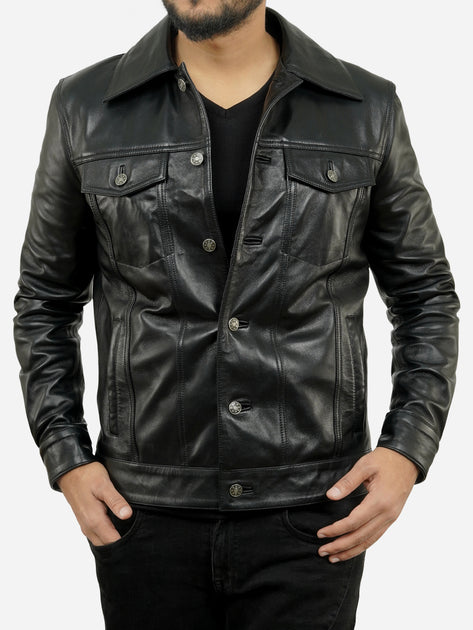
Trucker Leather Jacket

Chester Black Leather Jacket With Patches





